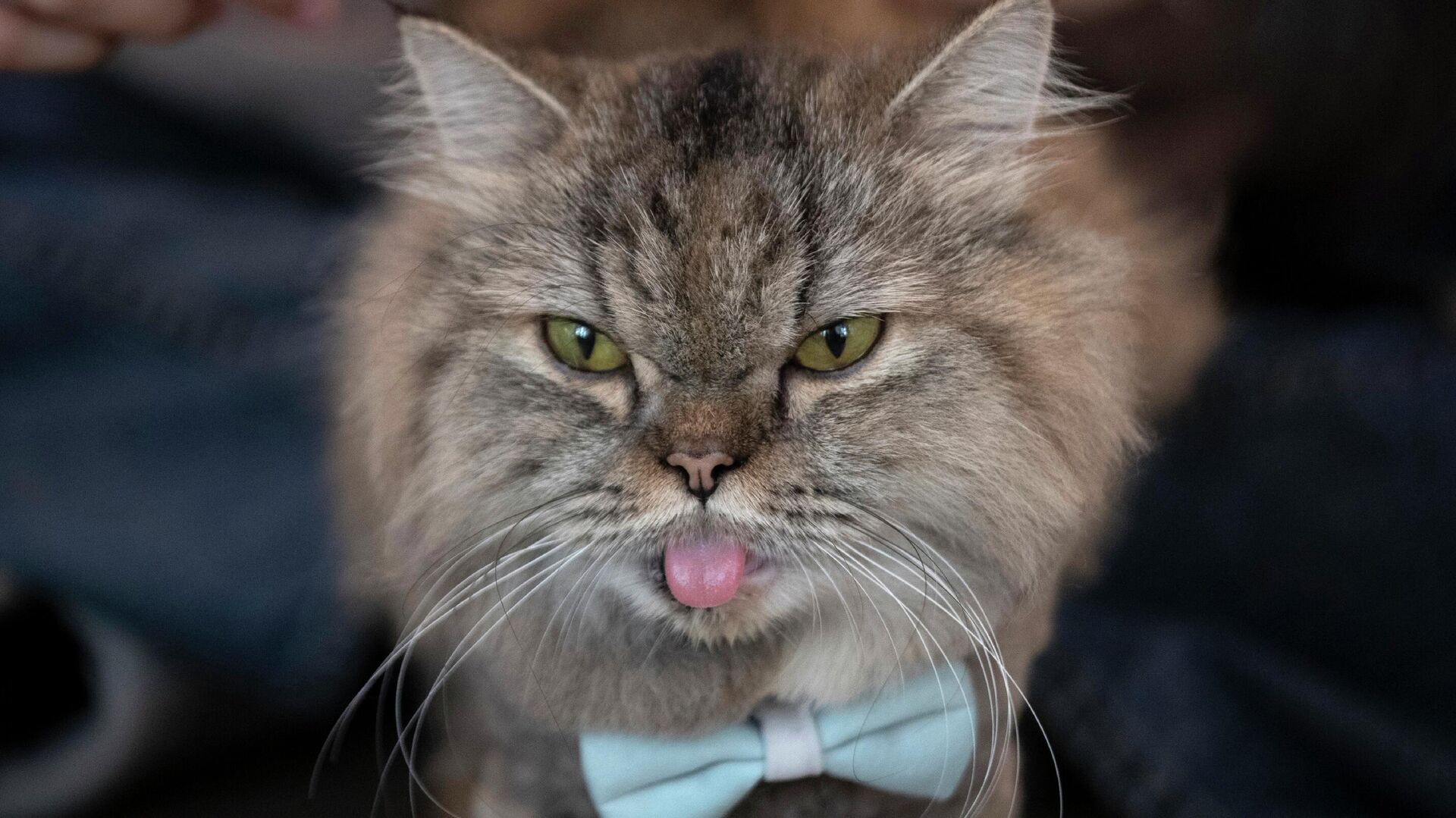https://sputnikglobe.com/20220814/pet-me-not-study-says-cat-people-might-adore-their-felines-way-too-much-sometimes-1099570960.html
Pet Me Not: 'Cat People' Might Adore Their Felines Too Much Sometimes, Says Study
Pet Me Not: 'Cat People' Might Adore Their Felines Too Much Sometimes, Says Study
Sputnik International
Showing too much love to your adorable cat? Well, your pet might resent your affectionate overtures - and there is now scientific evidence to prove it. 14.08.2022, Sputnik International
2022-08-14T09:01+0000
2022-08-14T09:01+0000
2022-08-14T10:35+0000
cat
cat
scientific study
research
animal research
animal
science & tech
https://cdn1.img.sputnikglobe.com/img/07e6/08/08/1099377151_0:438:2861:2047_1920x0_80_0_0_659f1b69639a8f405c0d12db3a2dea0b.jpg
Researchers at Nottingham Trent University in England conducted a study of experienced cat owners and revealed that showing too much affection to cats could affect their behavior.During the experiment, around 119 cat lovers were asked to fill in a survey in advance, assessing their personality and experience with cats.Each volunteer was given five minutes each in Battersea Dogs and Cats Home to interact with three cats as they normally would with their own pet - but only when the animal approacheed them.Researchers analyzed the areas where the participants would commonly pet their cats and found out that those who rated themselves as experienced cat-lovers would pet them in unwanted and uncomfortable areas.It turns out there are "red" areas where cats don't typically want to be petted, such as their stomach, base of the tail, legs and back. Meanwhile, "green" areas are the base of ears, cheeks, or jaw. Other areas seem to be “amber”.However, the study explained that people with more cat experience feel more comfortable approaching an animal’s “red” zones.Moreover, participants who reported having more cats at home and who have had cats for longer were less likely to give cats as much control and freedom during interactions as they really should have.
Sputnik International
feedback@sputniknews.com
+74956456601
MIA „Rossiya Segodnya“
2022
Sangeeta Yadav
https://cdn1.img.sputnikglobe.com/img/07e4/08/1b/1080292803_0:121:960:1081_100x100_80_0_0_7490b319dab9611e309056b177265184.jpg
Sangeeta Yadav
https://cdn1.img.sputnikglobe.com/img/07e4/08/1b/1080292803_0:121:960:1081_100x100_80_0_0_7490b319dab9611e309056b177265184.jpg
News
en_EN
Sputnik International
feedback@sputniknews.com
+74956456601
MIA „Rossiya Segodnya“
Sputnik International
feedback@sputniknews.com
+74956456601
MIA „Rossiya Segodnya“
Sangeeta Yadav
https://cdn1.img.sputnikglobe.com/img/07e4/08/1b/1080292803_0:121:960:1081_100x100_80_0_0_7490b319dab9611e309056b177265184.jpg
cat, cat, scientific study, research, animal research, animal, science & tech
cat, cat, scientific study, research, animal research, animal, science & tech
Pet Me Not: 'Cat People' Might Adore Their Felines Too Much Sometimes, Says Study
09:01 GMT 14.08.2022 (Updated: 10:35 GMT 14.08.2022) Showing too much love to your adorable cat? Well, your pet might resent your affectionate overtures - and there is now scientific evidence to prove it.
Researchers at Nottingham Trent University in England conducted
a study of experienced cat owners and revealed that showing too much affection to cats could affect their behavior.
During the experiment, around 119 cat lovers were asked to fill in a survey in advance, assessing their personality and experience with cats.
Each volunteer was given five minutes each in Battersea Dogs and Cats Home to interact with three cats as they normally would with their own pet - but only when the animal approacheed them.
Researchers analyzed the areas where the participants would commonly pet their cats and found out that those who rated themselves as experienced cat-lovers would pet them in unwanted and uncomfortable areas.
It turns out there are "red" areas where cats don't typically want to be petted, such as their stomach, base of the tail, legs and back. Meanwhile, "green" areas are the base of ears, cheeks, or jaw. Other areas seem to be “amber”.
However, the study explained that people with more cat experience feel more comfortable approaching an animal’s “red” zones.
"Of course, every cat is an individual and many will have specific preferences for how they prefer to be interacted with," said Lauren Finka, a researcher in animal behavior and welfare at Nottingham Trent University in the UK. "However, there are also some good general principles to follow to ensure every cat is as comfortable as possible and that their specific needs are being met."
Moreover, participants who reported having more cats at home and who have had cats for longer were less likely to give cats as much control and freedom during interactions as they really should have.
"Our findings suggest that certain characteristics we might assume would make someone good at interacting with cats – how knowledgeable they say they are, their cat ownership experiences and being older – should not always be considered as reliable indicators of a person's suitability to adopt certain cats, particularly those with specific handling or behavioral needs," Finka said.


